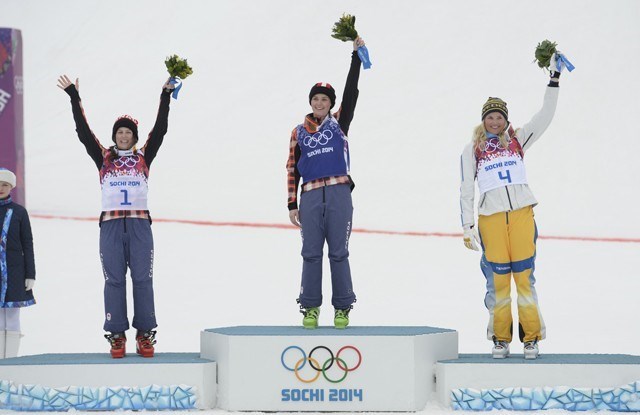When thinking of the 2022 Olympic Winter Games coming up in about a month, one almost can’t help but reminisce about all the special Olympic moments we’ve been able to witness over the years.
The moments that spring to mind while I’m sitting here writing this, which still fill me with a sense of Canadian pride and give me goosebumps just thinking about, include Alexandre Bilodeau winning the first ever gold medal on Canadian soil at the 2010 Vancouver Olympics; Jon Montgomery, in what might be the most quintessential Canadian moment of all time, walking down the Village Stroll and being handed a pitcher of beer on his way to stepping on to the top spot of the podium; and Mark McMorris, who grew up skiing in my hometown of Fort Qu’Appelle, Sask., returning from a near-fatal backcountry snowboarding accident to win an Olympic bronze medal just one year later.
But being raised in Saskatchewan, where your years revolved around two things—hockey in the winter and baseball in the summer—the one moment that always tops them all, which if I close my eyes I can still see and hear clear as day almost 12 years later, was Sidney Crosby screaming “Iggy!” before receiving the pass from Jarome Iginla and sliding home the golden goal between the legs of USA goaltender Ryan Miller and throwing his gloves and stick into the stratosphere.
For me, when I think about the Winter Olympics, I think about hockey and watching the world’s best players battle it out for their nations every four years.
So when the NHL announced its players would not be attending the 2022 Games after all, naturally I was pretty disappointed. Yet another Olympic Games where I have no interest in watching my favourite event.
However, when I got back to the office after a handful of days spent back home in Saskatchewan for Christmas, there was a message on my answering machine that offered a new perspective on NHLers not attending the Olympic Games.
The message was from Stacy Kohut, a Whistler skier and four-time medallist at the Paralympic Games. In his message, Kohut asked if I’d be interested in writing an article about how “it is so awesome that the NHL players are not going to be in Beijing.”
As you could probably guess from what I explained above, that wasn’t exactly the reaction I had to finding out NHLers would not be attending the Games. Frankly, it was the exact opposite of my reaction, which piqued my interest (see what I did there?).
After listening to Kohut explain his stance in the rest of the message, I decided to give him a call to chat about what no NHLers means for all the other athletes attending the Games.
Kohut’s argument was a simple one: without the star power of the NHL athletes at the Games, all the focus, all the profiles, all the getting-to-know-the-athlete segments will now be done on athletes from other sports, instead of the already-famous NHL players.
It puts the athletes who need the exposure and the opportunity to gain more sponsorships in the limelight and gives them the platform to be recognized by the corporations that do the sponsoring, instead of rehashing and digging up even more “colourful” insights into the early life of the colourless Connor McDavid—the ones that every hockey fan hears practically every single day on the country’s sports networks.
We get it—Connor McDavid was once a kid who dreamed of playing in the NHL, and had hockey-themed pyjamas. Cool. Let’s move on.
So when it comes to the benefits to all other athletes of not having NHLers at the Olympics, Kohut’s argument is one I can definitely get behind, and it lessens the sting of losing my favourite Olympic event.
The downside of all of this, though, is with less interest in watching the hockey games, the Olympic “finale,” which often is the gold medal game, becomes kind of underwhelming. We need a new draw to keep people’s interest in the hockey games because, I’m sorry, but a team of 30-year-old career AHLer/European league veterans isn’t going to cut it.
One option pointed out by Kohut, as well as many other people, to keep the interest without taking away anything from the athletes of other sports would be to send our best junior players to the Games, as this would be more in line with the spirit of the Olympics, which has always been about amateur athletics.
But with this year being a write-off due to the last-minute decision to pull the NHLers, we have four more years to think about Mr. Kohut’s argument and find a way to continue highlighting non-NHL athletes, while keeping Olympic hockey as engaging as possible.
Who knows? Maybe this will be exactly what’s needed to vault women’s hockey into the forefront of international play.




